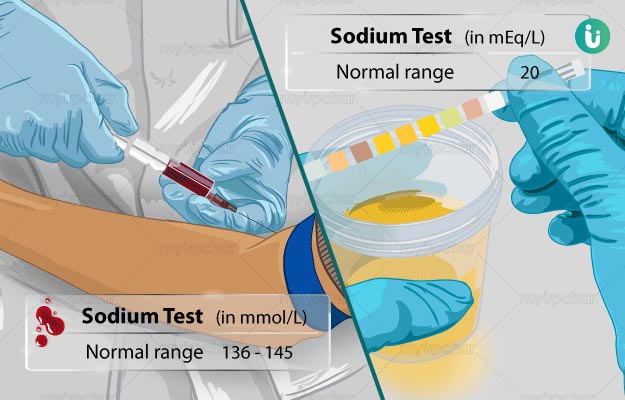What is sodium test?
Sodium test, also known as Na test, his generally done as a part of the basic metabolic panel or electrolyte panel to measure sodium levels in blood and urine. Sodium is an electrolyte, which plays a vital role in the normal functioning of body cells, nerves and muscles. It also helps in maintaining fluid balance in body.
Sodium is most commonly consumed in the form of salt and kidneys are responsible for eliminating all the excess sodium from the body. However, in the case of excess sodium intake or damaged kidneys, your body cannot throw out this electrolyte. As a result, it starts accumulating in blood, leading to a condition called hypernatremia. Hypernatremia may also occur due to excessive loss of fluids from body, such as in diarrhoea or vomiting. It may cause water retention in the body, leading to high blood pressure.
On the other hand, excessive intake of fluids or problems with urination may lead to abnormally low levels of sodium, also called hyponatremia.
























